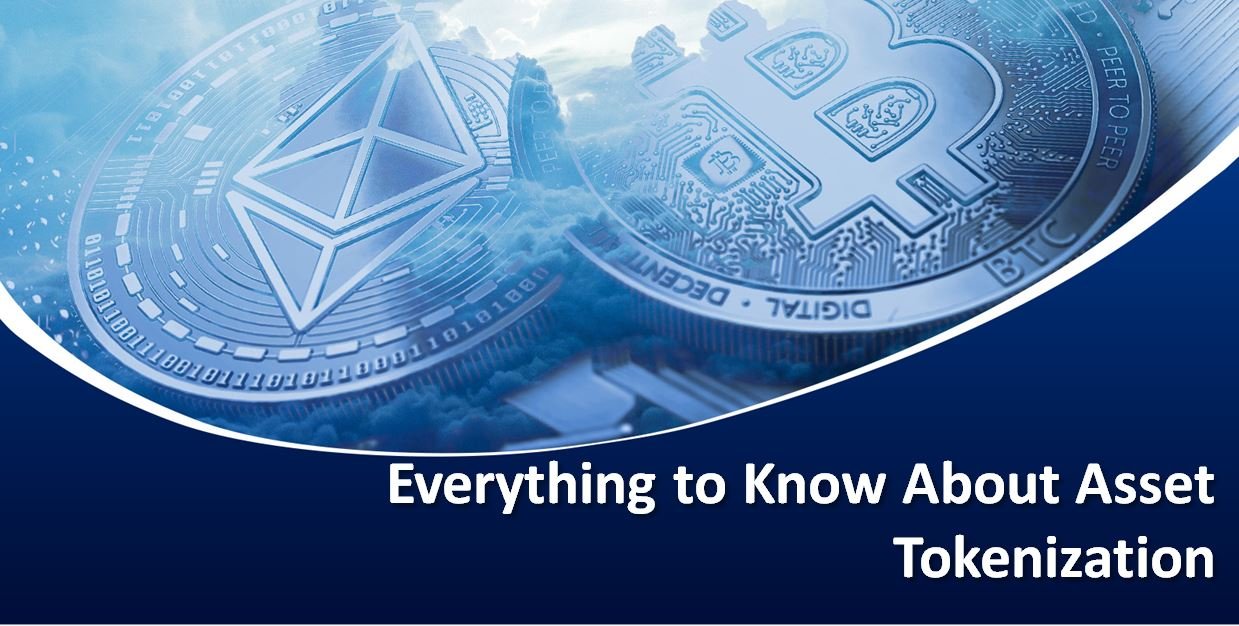Tokenization has proved to be a gamechanger in the cryptocurrency industry. It generally refers to a process by which assets are available digitally on a distributed ledger. The method can be used for any industry with the right technology.
An asset will be divided into different tokens with economic value and its ownership rights will be distributed among different stakeholders. Tokenizing an asset is a big challenge to the traditional financial system.
It works on the concept of fractionalization. It benefits buyers as they will have access to assets higher than their reach. Sellers will find it easy to put off those assets to potential customers and earn higher liquidity premiums.
Types of Asset That Can Be Tokenized
- Real Estate – Different kinds of property, such as commercial and residential, can be tokenized. Since it is always in demand, investors can trade in a fraction of properties and make profits. High liquidity leads to better conversion.
- Precious metals – The likes of gold and silver can be tokenized. Transparency is ensured as investors can analyze metal value and set prices accordingly.
- Arts and luxury items – Fine art items can be tokenized through decentralization. By removing the need for an auctioning process, costs regarding physical preservation can be cut down.
- Sports teams – Investors can put their money on clubs and players through tokenization. Future returns can be earned based on the uplift in the team value.
- Essential commodities – Challenges like rising prices, lack of trust, and involvement of third parties, can be eliminated for traditional commodities using tokenization. The whole process of supply chain management can be improved.
Related: How to Tokenize Commercial Real Estate Asset
Benefits of Asset Tokenization
- Steadiness – The transactions executed will be stored in a record safely. Balances of accounts and ownership of assets are also kept secure. There is no possibility of tampering or altering the data as every party has a copy of the same version of a document. It is permanent and can never be removed.
- Universal nature of operations – Tokenization can be executed throughout the year from any part of the world. A smartphone with an internet connection is needed to execute the transactions right away.
- Saves costs – Through a well-functioning smart contract system, all intermediaries are eliminated in the process of settlement of transactions. This improves overall efficiency and reduces overhead expenses.
- Lucidity – All information is clearly known between the different parties. There is no chance of any leakage of details favoring one party over the other during the transfer of ownership. This reduces the chances of corruption.
- Secure – Since it relies on the impenetrable blockchain technology to execute transactions, it makes it safer and less susceptible to fraud.
- Liquidity – Due to fractional ownership, the barriers to entry are lowered. This enables even a small investor to stake a claim in the asset. New markets can be discovered as previously illiquid assets would become liquid now.
- Better compliance – By partnering with third-party exchanges, all secondary transactions can be tracked seamlessly. All participants in the settlement process can be given a digital identity for verifying KYC (Know Your Customer) and AML (Anti-Money Laundering) guidelines. This is more beneficial than manual processes that are expensive and time-consuming.
- Higher accessibility – With no requirements, such as minimum investment and lock-in period, investors can get access to valuable assets. They can also manage their risks through diversification by investing in multiple assets across the globe.
- Improved transparency – By purchasing a token, individuals also get some rights. They will get to know their permissions and legal responsibilities in a better way without relying on advice from agents.
Read also: How to Tokenize Real Estate Assets?
Challenges to Tokenize an Asset
- Since cryptocurrency regulations vary from country to country, there are no standard international guidelines for the industry. Owners of tokens do not have legal rights on the property. There is a need for a universal legal framework regarding tax implications, trading, and financial reporting.
- There may be a conflict between claim rights and ownership rights. Some users will be given only the right for certain specific uses of the asset like access to cash flows. Others will be given equity ownership and entire control of the asset.
- Due to the lack of a proper code of conduct, financial institutions can manipulate the system and expose investors to unhealthy practices. This can lead to a lack of trust among market participants.
- Currently, there is not an adequate number of licensed platforms to manage tokenization. This leads to more complexity as multiple trials and errors will be involved before full-fledged functionality.
- With increasing incidents of hacking, custody solutions, and security issues for tokens need to be sorted out quickly. There needs to be an increase in trust from users for sharing their data with specific parties.
- With more assets coming under the realm of tokenization now, there is a possibility that the value of tokens may collapse if it is not linked properly to a physical asset.
- Artificial inflation of prices can be attempted by some parties to deliberately manipulate the market for gaining majority control over the public ledger. Compensating investors for these issues would be quite challenging.
- New investors may find it confusing to manage token transactions using a wallet. This can lead to discouragement in their usage.
- Each organization has its own rules regarding data storage. This leads to inefficiency and low reliability.
- The onboarding process is quite slow, with multiple stages involved for verification of documents.
Read more: Property Tokenization: How to Convert Everything Into Tokens
How to Overcome the Different Challenges to Asset Tokenization
- As digitization gains pace, more organizations need to develop a sound blockchain infrastructure with adequate security and compliance. Hence, more blockchain developers would be required.
- Since intangible assets such as intellectual property can also be tokenized, there needs to be a proper mechanism by which values can be assigned to assets, such as trademarks and copyrights.
- Different cards used for financial payments must be made interoperable in international interchange. So, modifications have to be made in the card technology and processing systems.
- Financial institutions need to reequip themselves by acting as advisors for token structuring or servIng as a safe keeper of tokenized assets.
- Since private keys can be used to control wallets and steal money, there is an urgent need for better security measures in the management of keys.
- Tokens must satisfy both regulatory guidelines and laws. It must comply with the rules in both the investor’s and the issuer’s jurisdictions.
- Entities such as KYC utility providers, technology companies, and blockchain software suppliers can be tapped to change the operational processes.
Reach out well accomplished blockchain technology developers for converting your physical assets into attractive digital tokens and also a seamless business experience. sprunki horror Endless Fun Awaits!



